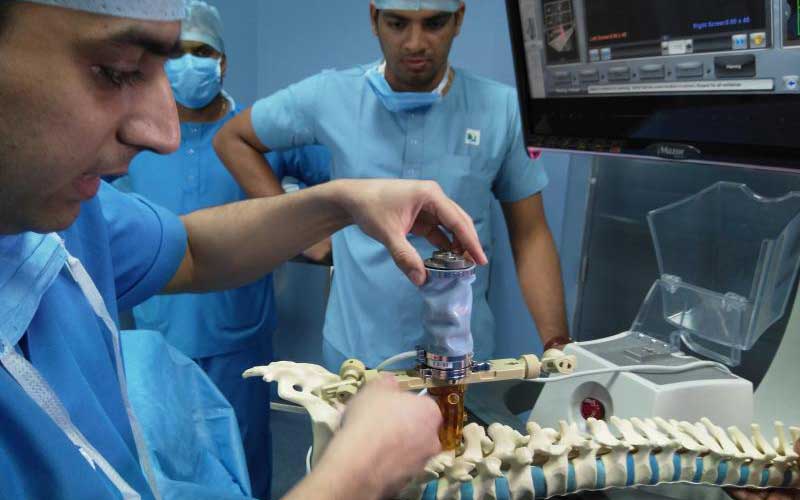
When Mercy Wanyama Nanyanga took her mother for lung cancer treatment in India, she never imagined she would also be treated for a potentially cancerous growth. She presented allergies including itching around the throat.
“They found a cold nodule, but Dr Kalpana Nagpal, requested further tests, and two weeks later, the results of the biopsy showed that I had a benign tumour,” Ms Nanyanga says.
It turned out that the allergies had been masking an underlying issue.“She said that if the type of tumour I had would have remained for a year or more it would have turned into thyroid cancer, yet I did not feel anything, I did not even know it was there.”
Speaking to Saturday Standard, Nagpal, says this is common. “One can have inflammation, infection or tumours in the thyroid. Thyroid tumours are mostly painless, so by the time they are presented to the doctor they could be advanced.”
Nagpal is a senior consultant in ENT, head and neck surgery and robotic surgery at the Indraprastha Apollo Hospital in New Delhi, India. As a robotics expert, she and her team offered Nanyanga the option of traditional surgery or robotic surgery. She opted for robotic surgery, which was Sh400,000 but with more advantages than traditional surgery.
Neck surgery
Robotic head and neck surgery has been happening for the last five years. “The advantages for the patient include, short stay in the hospital, scar-less surgery, no blood loss, no complications, and the recovery rate is faster. There is also no disfigurement of the jaw. Usually you have to cut open the jaw for head and neck surgeries,” Nagpal explains.
“Robotic surgery can sometimes help avoid chemotherapy and radiotherapy.”
In terms of advantages to the doctor, tremors are eliminated, the surgeon gets 3D vision and can therefore reach inaccessible areas without having to give external cuts. Robotic arms can move 360 degrees unlike normal human arms which have limitations at the wrist, the elbow and the shoulder.
Nanyanga’s surgery took between 6 to 8 hours. “I am glad I did it because the normal surgery leaves a scar along your throat. They went through the armpit, so the scar is hidden and even that one is fading. It also did not damage any major organs,” she says.
Nagpal and other doctors from the Apollo hospitals, such as the Apollo Navi Mumbai hospital, periodically come to Kenya to conduct CMEs (Continuous Medical Education programmes) in various countries in Africa, and hope to introduce robotic surgery in Kenya. “Along with with the Kenya Medical Board, for the last three years we have been helping to do screening, and educate the public about newer advanced treatments. Along with support from government, we can improve healthcare system in Kenya in a big way,” she says.
 The Standard Group Plc is a multi-media organization with investments in media
platforms spanning newspaper print
operations, television, radio broadcasting, digital and online services. The
Standard Group is recognized as a
leading multi-media house in Kenya with a key influence in matters of national
and international interest.
The Standard Group Plc is a multi-media organization with investments in media
platforms spanning newspaper print
operations, television, radio broadcasting, digital and online services. The
Standard Group is recognized as a
leading multi-media house in Kenya with a key influence in matters of national
and international interest.











